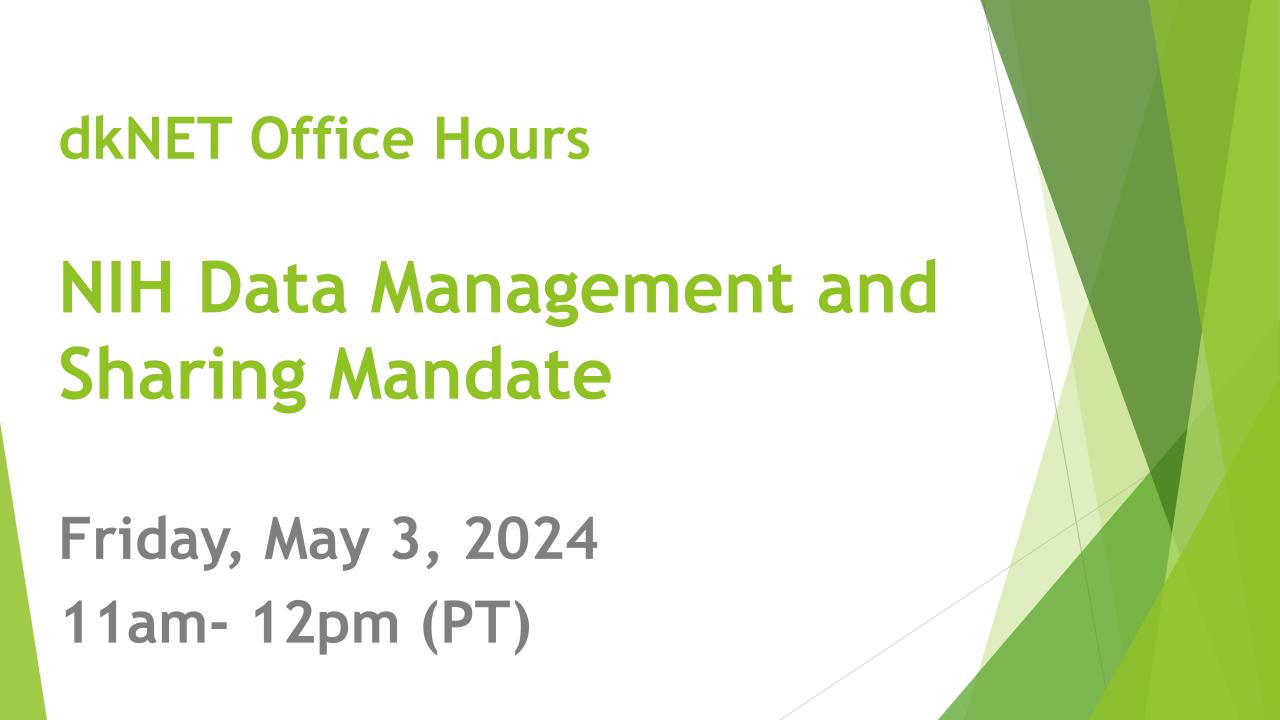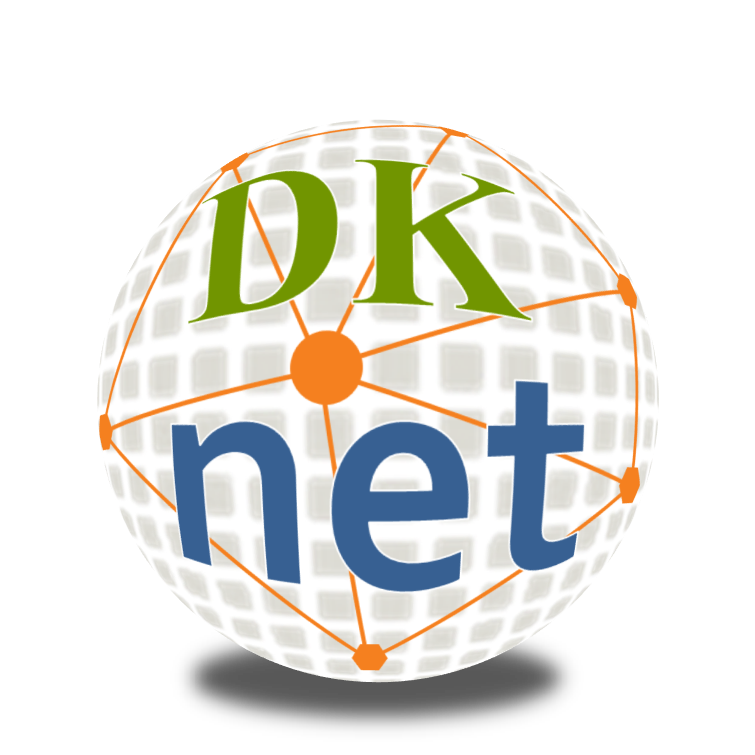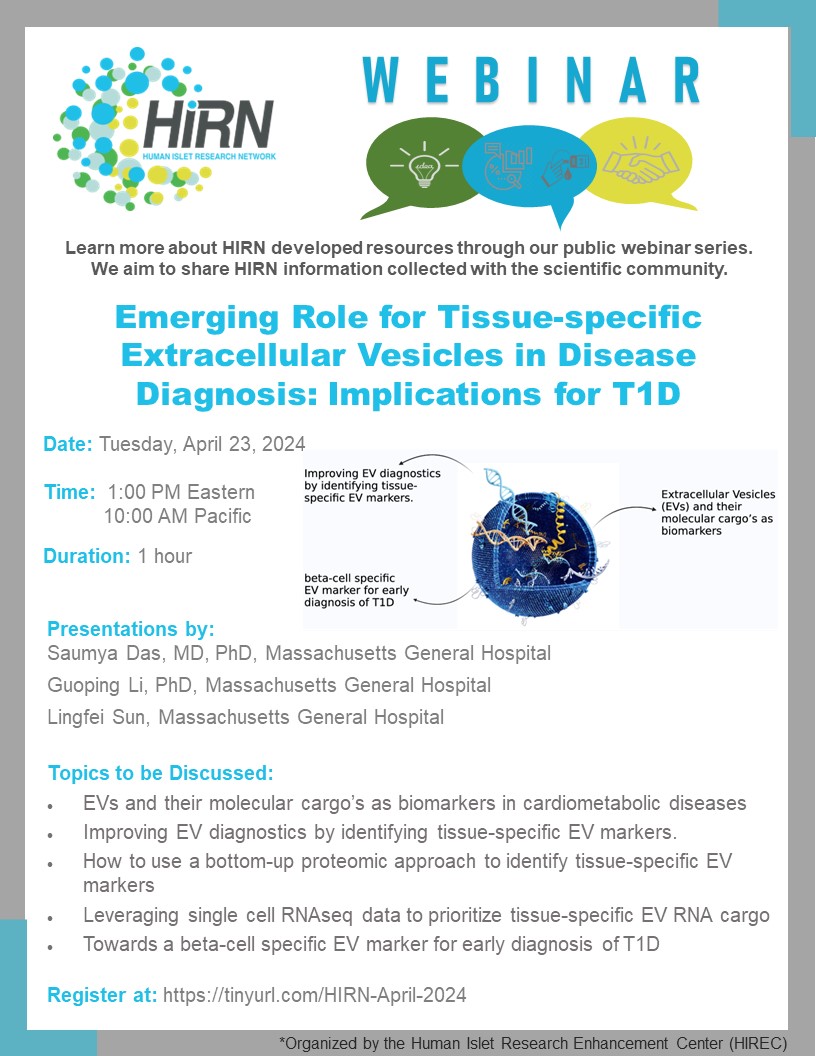Leaving Community
Are you sure you want to leave this community? Leaving the community will revoke any permissions you have been granted in this community.
dkNET community events and announcements in February, 2017
Dear dkNET Community,
dkNET provides updates on activities of interest to the NIDDK-supported community. You could keep up to date on these activities through our Twitter feed @dkNET_info, through our Community Calendar, or through dkNET e-mail list. If you have an event or funding opportunities you'd like to advertise, please contact us info_at_dknet.org.
Events in February, 2017
Feb. 3, 2017
The BD2K Guide to the Fundamentals of Data Science Series: Commons: Lessons Learned, Current State
Speaker: Vivien Bonazzi, National Institutes of Health, Bethesda
More information: http://www.bigdatau.org/data-science-seminars
Feb. 13, 2017
ENDO2016 Late breaking abstracts submission deadline
ENDO 2017 is the world’s premier event for presenting and obtaining the latest in endocrine science and medicine. With an extensive program covering a broad array of topics, various networking opportunities, poster sessions, continuing medical information, updates on new products and technologies at the ENDOExpo, keynote speakers, and more, attendance at ENDO is a “must-attend” event. Come join 7,500 of your colleagues for an educational experience that will enhance your professional development, improve your work, build your reputation, and shape the future of the field.
More information: https://www.endocrine.org/endo-2017
Feb. 17, 2017
The BD2K Guide to the Fundamentals of Data Science Series: Supervised Learning, prediction, Machine Learning & Dimensionality Reduction
Speaker: Daniela Witten, University of Washington
More information: http://www.bigdatau.org/data-science-seminars
Feb. 19-22, 2017
2017 JDRF nPOD 9th Annual Scientific Meeting
The Network for Pancreatic Organ Donors with Diabetes (nPOD) is proud to host its 9th Annual Meeting at the Fort Lauderdale Marriott Harbor Beach Resort & Spa in Fort Lauderdale, Florida, February 19-22, 2017. Over the past nine years, JDRF nPOD has made remarkable strides in terms of meeting its organizational goals. Key amongst them seeing its investigators making discoveries that answer the question of, “What causes type 1 diabetes?” nPOD is making remarkable strides toward that goal and hence, we anticipate the 2017 meeting will continue to foster meaningful collaborations toward that goal through directed topic discussions.
Location: Fort Lauderdale, FL, USA
More information: http://www.jdrfnpod.org/news-events/2017-jdrf-npod-8th-annual-scientific-meeting-registration/
Feb. 23, 2017
JAX webinar: Genetic Drift - What It Is and Its Impact on Your Research
The phenotypes of genetically modified mouse strains depend on the genetic mutation and background. Genetic background is subject to genetic drift that may result in phenotypic drift over time. In this webinar, you will learn about the following topics:The basis for genetic drift, case studies demonstrating genetic drift and its effects on experimental results, the Jackson Laboratory’s unique Genetic Stability Program to stop cumulative genetic drift, and steps to ensure the long-term genetic and phenotypic stability of your mutant mice.
More information: https://www.jax.org/education-and-learning/education-calendar/webinars/2017/022017/genetic-drift-feb-23
Feb. 24, 2017
The BD2K Guide to the Fundamentals of Data Science Series: Smoothing, Unsupervised Learning, Clustering & Density Estimation
Speaker: Ali Shojaie, University of WashingtonMore information: http://www.bigdatau.org/data-science-seminars
Funding opportunities information and deadlines in February, 2017
Feb. 5, 2017
JDRF Funding Application Due Date: Improved Autoantibody Assays for Predicting Risk for Type 1 Diabetes (T1D)
JDRF is soliciting applications for optimizing and validating existing technologies for predictive screening for T1D risk and autoimmunity to be applied for wide-spread use in population-based screening efforts, including newborn or childhood based screening. The development of improved islet AAb assays to enable T1D risk detection in the general population or increased capability to screen in enriched populations (HLA at-risk, relatives) would facilitate recruitment for clinical research focused on identifying environmental triggers and natural history of T1D, along with interventions to prevent T1D.
More information: http://grantcenter.jdrf.org/rfa/improved-autoantibody-assays-for-predicting-risk-for-type-1-diabetes-t1d/
Feb. 22, 2017
Letter of Intent Due Date: Therapeutic Targeting of The Human Islet Environment (UC4)
This Funding Opportunity Announcement (FOA) solicits applications for projects to develop strategies to target the human pancreatic environment in-vivo to deliver cell-based therapeutics, regulatory molecules or gene constructs that can protect or replenish the functional beta cell mass, or to develop synthetic sentinel biomarkers to safely monitor beta cell stress or disease initiation prior to the appearance of autoantibodies in individuals at risk of developing Type 1 Diabetes (T1D). Successful applicants will join the Consortium on Targeting and Regeneration (CTAR) that supports the development of innovative strategies to increase functional human beta cell mass in vivo through the controlled manipulation of beta cell replication, islet cell plasticity, or the reprogramming of pancreatic non-beta cells into beta-like cells. CTAR is part of the Human Islet Research Network (HIRN).
More information: https://grants.nih.gov/grants/guide/rfa-files/RFA-DK-17-003.html
Feb. 23, 2017
Letter of Intent Due Date: Competitive Collaborative Projects for Human Islet Biology (UC4)
This Funding Opportunity Announcement solicits applications for collaborative research projects that will enhance the goals of the Human Islet Research Network (HIRN; www.hirnetwork.org). The HIRN is a collaborative program consisting of multiple related but distinct research consortia focused around two common goals: increasing our understanding of how human beta cells are lost in Type 1 Diabetes (T1D), and finding innovative strategies to protect or replace functional beta cell mass in diabetic patients. Applicants to this FOA will be expected to lend unique perspectives and novel approaches to the network, and will be expected to pursue experiments that will be consistent with HIRN's continuing emphasis on studies that elucidate key aspects of human biology and physiology.
More information: https://grants.nih.gov/grants/guide/rfa-files/RFA-DK-17-004.html
Feb. 24, 2017
Funding Opportunity Application Due Date: APOL1 Long-term Kidney Transplantation Outcomes Network (APOLLO) Clinical Centers (Collaborative U01)
The purpose of this FOA is to support the Coordinating Unit for the NIDDK Mouse Metabolic Phenotyping Centers Consortium (MMPC-CU). The MMPC-CU will continue to enhance and maintain the MMPC website and database, and will provide administrative support needed to enhance MMPC services, meetings, and opportunity pool programs.
More information: http://grants.nih.gov/grants/guide/rfa-files/RFA-DK-16-034.html
Feb. 24, 2017
Funding Opportunity Application Due Date: APOL1 Long-term Kidney Transplantation Outcomes Network Scientific and Data Research Center (APOLLO SDRC)(Collaborative U01)
This Funding Opportunity Announcement (FOA) invites cooperative agreement applications to establish a multi-disciplin
More information: http://grants.nih.gov/grants/guide/rfa-files/RFA-DK-16-024.html





